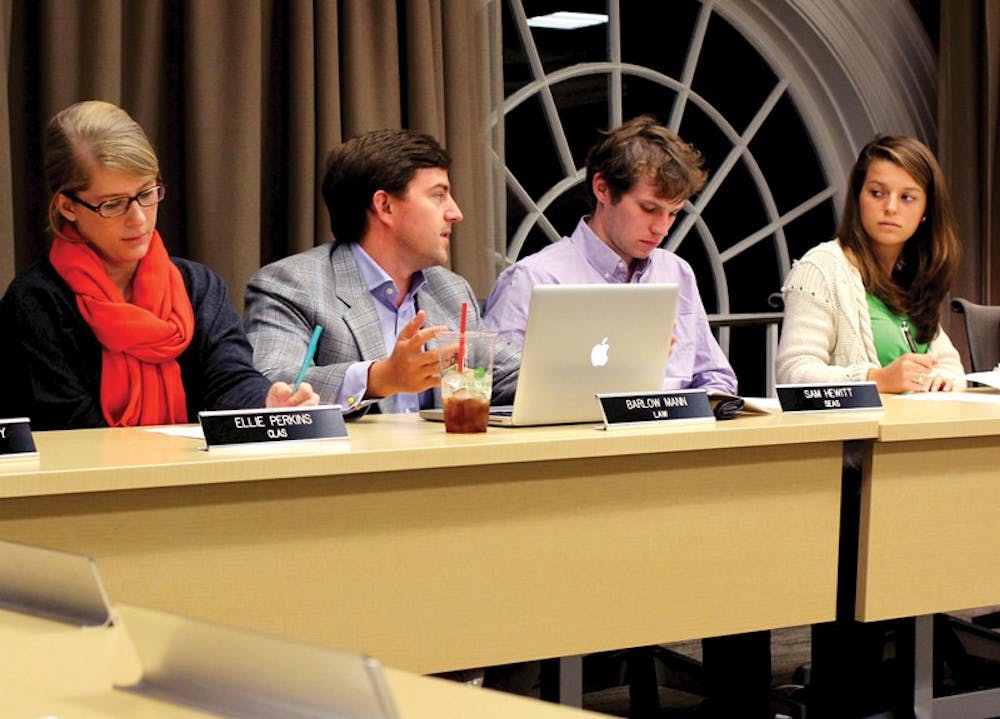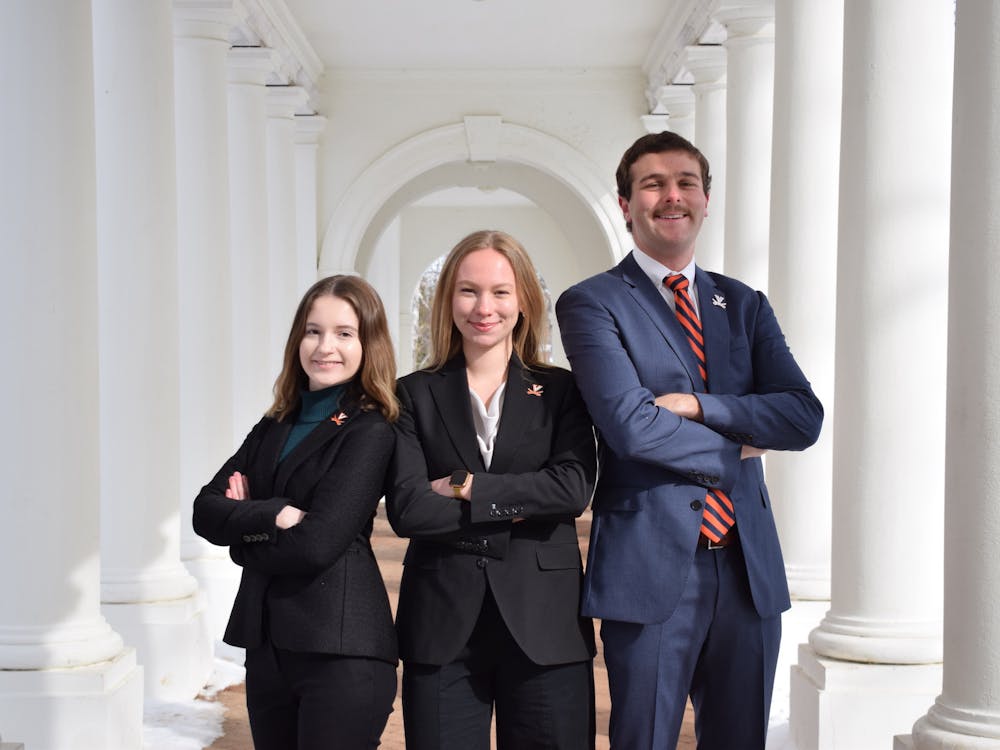The debate about the Honor Committee's legislative proposal for an alternative to the single sanction intensified last night, with the meeting concluding on a decision to vote next week on whether to continue discussion or abandon the idea altogether.
Such an "informed retraction," introduced at last week's meeting, would give students who have been notified they are under investigation for committing an honor offense an opportunity to admit to their wrongdoings and avoid the trial process. After a suspension period, the offender would eventually be allowed to return to the University.
According to the Committee's first draft of legislation, the suspension period would be two semesters in addition to the remainder of the semester in which the student filed the informed retraction. A permanent notation indicating his honor offense would also be written on his transcript.
Barlow Mann, Law representative and chair of the Faculty Advisory Committee, raised concerns that various faculty members had expressed about the legislation at the last FAC meeting. Mann meets monthly with willing faculty members to keep faculty members informed about the Committee's efforts.
He said a number of professors had concerns that a two-semester punishment period was too lengthy. One professor suggested an alternate punishment: The offender could lose credit for the semester in which the honor offense occurred instead of being suspended, Mann said.
Another professor suggested the two-semester suspension should not be called a punishment if the student is going to be let back into the University. Rather, it should be a period of reflection as part of an opportunity to come back to the University, the same professor said at the FAC meeting.
Students at the meeting also expressed concerns about the general idea of an informed retraction. Clifton Bumgardner, Honor Senior Council member said the informed retraction would "disrupt the standards expected of all members of the community."
He said if a student is allowed to decide whether or not he can retract an honor offense in the manner set forth in the legislation, it is not a "decision of honor," rather one of "academic survival."
Senior Council member Anne Russell Gregory expressed concern about "the impact the [informed retraction] would have on our community of trust."
If the informed retraction tolerates acts of lying, cheating and stealing, "how would community relations change? How does one uphold honor over time with these uncertainties?" Gregory asked.
The Committee also continued its discussion from last week about the first draft of the legislation, particularly focusing on the problem of how many individual offenses one informed retraction can pardon.
The drafted legislation currently reads, "An IR can only be used in one Honor Offense. If a student is reported for multiple offenses in one report they may only submit an IR for one of these instances."
The Committee sometimes finds that a student will commit two honor offenses in one act. Stealing an exam to obtain the answers early, for example, would constitute both stealing and cheating, according to the Committee's constitution.
College Rep. Ellie Perkins pointed out that "there is a difference between stealing someone's test and cheating off of it and cheating off a test and then lying about it [later]."
Committee members said it is difficult to determine how many individual actions a student could retract with one report.
"We could think of hypothetical cases, but it's hard to define that," Commerce Rep. John Mark DiGrazia said. "We'll have to find a uniform way to do that. If not, the decision is completely arbitrary."
Law Rep. Brendan Staley suggested adding a temporal aspect to the decision-making process. "If the [offenses occurred] over a period of months then that's problematic, but if it's all contained to one episode there should be one report," he said.







